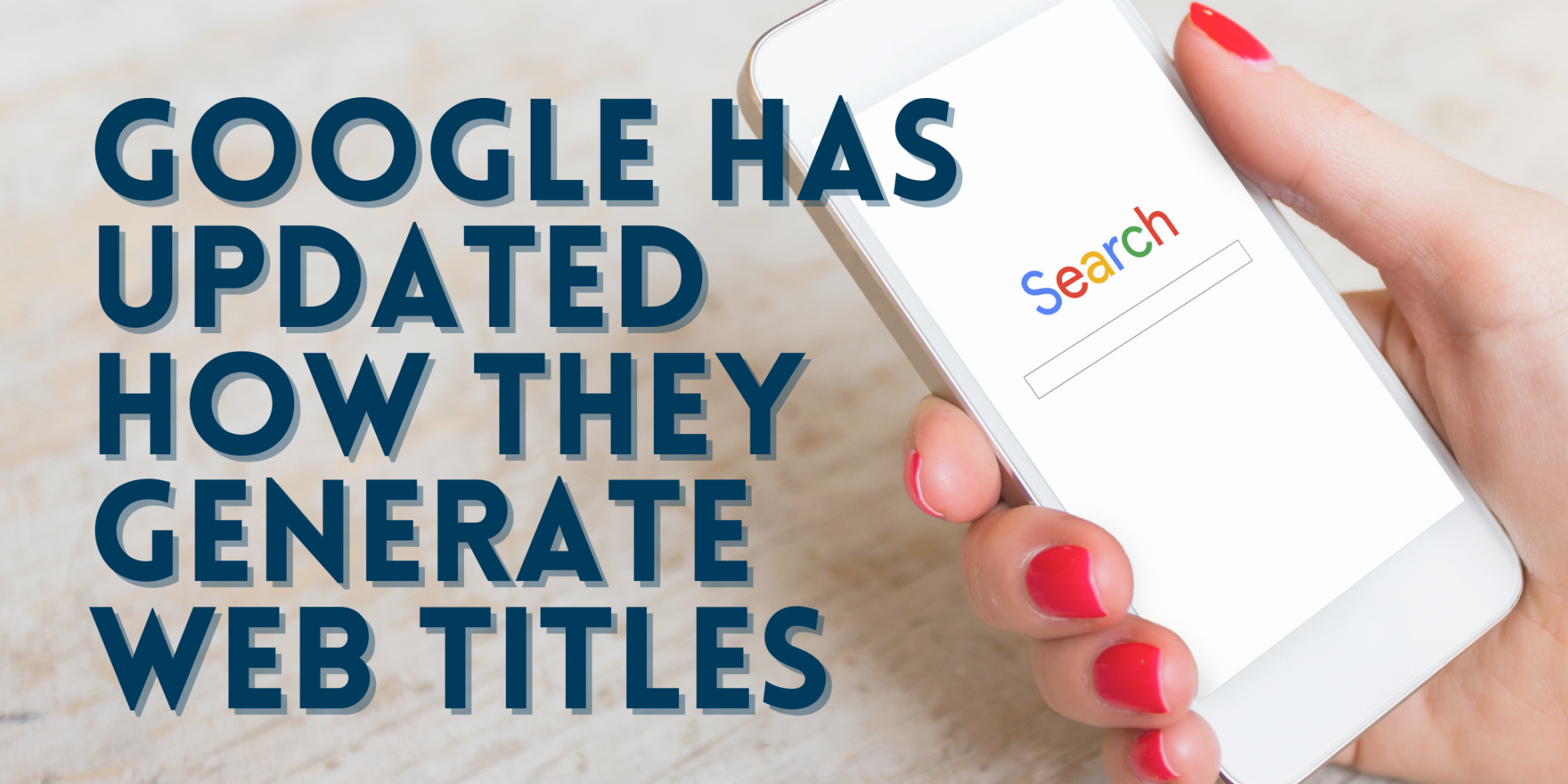Google Has Updated How They Generate Web Titles
One of the main ways people decide which search results are most relevant to their query is by reviewing the titles of the listed web pages. Google Search works to provide the best titles for documents in their results to connect searchers with the most relevant content produced by creators, publishers, and businesses.
So, how are these titles generated?
Recently, Google introduced a new system of generating titles for web pages. Previously, titles may have changed based on the query searched – this generally will no longer happen with Google’s new system. Google’s new system aims to produce titles that work in favour for documents overall, to describe what they are about, no matter the query.
However, while Google has gone beyond HTML text to create titles for over a decade, their new system is now making even more use of this text. For example, Google is making use of text that users can visually see when they enter a web page. Google considers the main visual titles or headlines, the content that site owners usually place within the <H1> tags or other header tags, as well as the content that is large or prominent through the use of style treatments.
Other text contained in the page may also be considered, as well as the text with hyperlinks that point at pages.
You may ask – why not just use the HTML title tag?
Well, for the same reasons explained, when Google began going beyond the tag back in 2012, HTML tags did not always describe the page well. For instance, some title tags may have been:
- Too long,
- “Stuffed” with keywords (because creators may believe that adding a lot of keywords will increase the chance of ranking higher).
- Lack title tags or contains repetitive language. For example, the home page of a site may simply be called “Home”, whereas in other cases, all pages in a site may be called “Untitled” or simply have the same name of the site.
Overall, Google’s update is designed to create more readable and accessible titles for pages. Due to this new update, in some cases, Google may add site names where they deem to be helpful, and in other instances, when a title is too long, they may choose the most relevant part of the title rather than starting from the beginning and shortening the more useful messaging.
Good HTML title tags remain valid
Although Google has updated how they generate title tags, it is still important to focus on creating great HTML title tags. Google has stated that “Of all the ways we generate titles, content from HTML title tags is still by far most likely used, more than 80% of the time”.
Keep in mind, that as with any system, the titles Google generates will not always be perfect. Google will continue to make refinements to their new system and will continue to work to make it better. However, Google mentions that their testing shows the introduced changes do produce titles that are more readable and preferred by searchers compared to their old system.
To learn more about Google’s current updates, or if you have any queries on how this will affect your own website, contact WebEagles on 1300 128 808, and one of our friendly digital marketing experts will be able to answer any questions.


